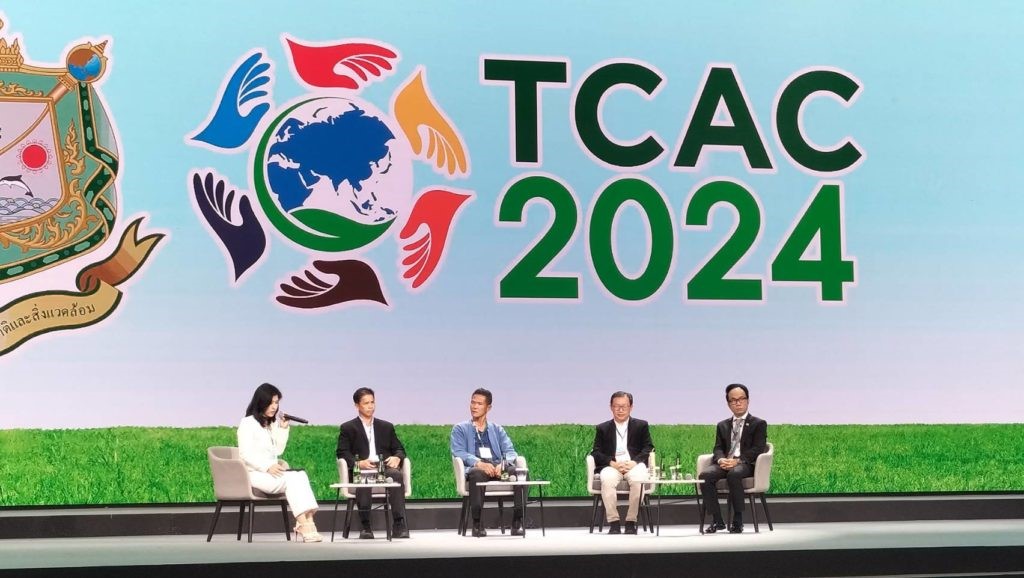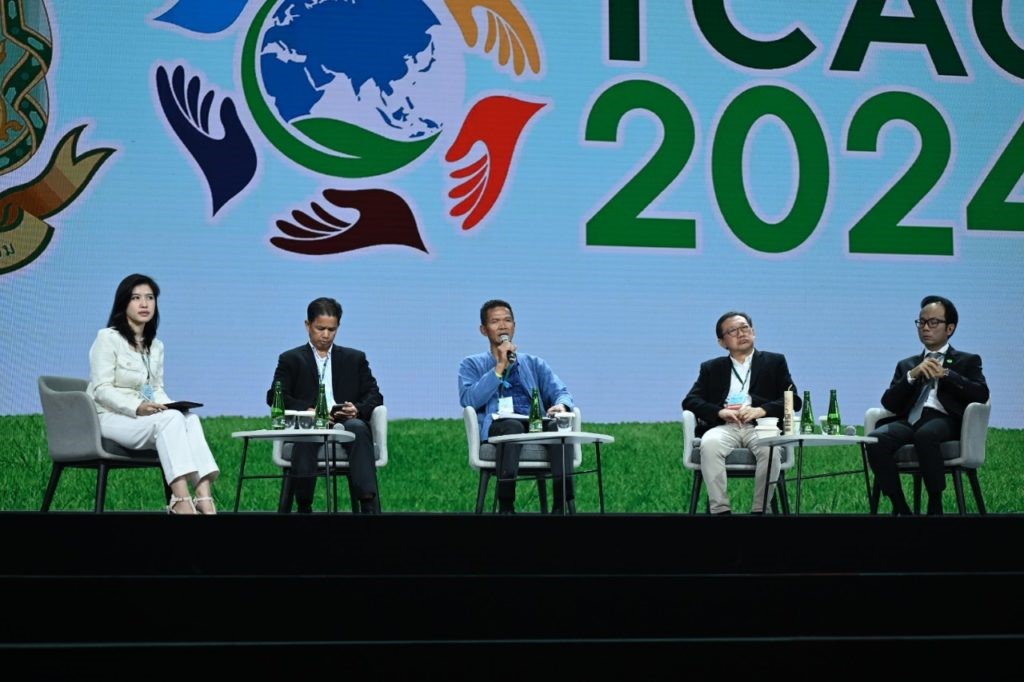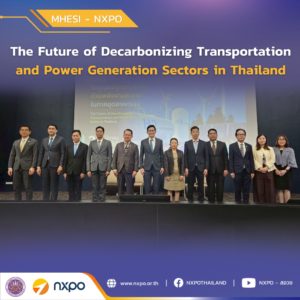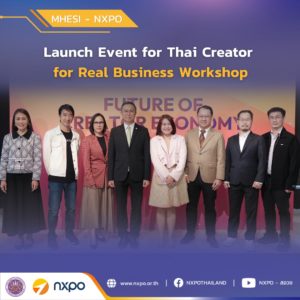On 3 October 2024, Dr. Saravanee Singtong, Director of Sustainability Policy Division at NXPO, moderated a session titled “Climate Tech: Technology for Climate-Friendly Future” during the Thailand Climate Action Conference (TCAC) 2024 at the Queen Sirikit National Convention Center. The session featured distinguished panelists including Dr. Atsamon Limsakul, Director of Climate Change Adaptation Research Section at the Department of Climate Change and Environment; Mr. Suparuek Numdee, Deputy Mayor of Doem Bang Subdistrict in Suphan Buri Province; Dr. Weerachat Kittirattanapaiboon, CEO of Biodegradable Packaging for Environment Public Company Limited (BPE); and Mr. Piyabut Charuphen, Managing Director of Bangkok Industrial Gas Company (BIG).

TCAC 2024 aimed to foster collaboration among key stakeholders and advance climate action by bridging policy and practical implementation.
Dr. Saravanee Singtong opened the session by underscoring the potential of Thai innovators in developing climate technologies that could serve as exportable commodities, contributing to Thailand’s goal of achieving net-zero greenhouse gas emissions.
Dr. Atsamon Limsakul presented on the development of a heat index designed to assess the impact of climate change, particularly on public health, across different regions of Thailand. The initiative includes developing measurement tools and collaborating with the Ministry of Public Health to monitor and issue warnings, especially for seniors and other vulnerable groups who can be greatly affected by rising temperatures.

Representing the Global Warming Mitigation Learning Center at Doem Bang Subdistrict, Mr. Suparuek Numdee introduced innovative low-carbon rice farming practices, highlighting four key technologies: land levelling, alternate wetting and drying, site specific nutrient management, and straw and stubble management. Integrated pest management (IPM) techniques are also being used to reduce chemical inputs. These technologies aim to boost productivity while reducing the carbon footprint, aligning with sustainable development goals under the Thai Rice NAMA initiative.
Dr. Weerachat Kittirattanapaiboon introduced his company’s biodegradable packaging solutions, made from agricultural waste like rice straw. These products decompose in soil within 45 days and offer an alternative to plastic packaging. The manufacturing process is powered by clean energy from solar power and follows circular economy principles across the supply chain.
Mr. Piyabut Charuphen discussed advanced climate technologies, including hydrogen energy, carbon capture, and carbon management platforms. He highlighted the hydrogen energy demonstration project in Map Ta Phut, Rayong, implemented in partnership with PTT and Toyota Motor Thailand. BIG employs IoT technology to monitor and analyze carbon emissions and integrates hydrogen energy into its operations to achieve net-zero emissions. The company also collaborates with Thailand Post to incorporate hydrogen energy into the logistics and transportation sector.
In closing, Dr. Saravanee emphasized Thailand’s significant potential in climate technology development, both in sectoral development and in addressing climate adaptation and emission reduction. She stressed the importance of cross-sector collaboration to transition these technologies from research to commercialization, generating economic value while minimizing resource use.







